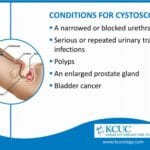So, you’re aiming to boost your healthcare career? Excellent choice! This comprehensive guide navigates you through the essentials of becoming a Certified Documentation Integrity Practitioner (CDIP), from understanding the core requirements to acing the exam and thriving in your new role. Whether you’re a seasoned healthcare professional or just starting out, this guide is your roadmap to CDIP success.
Why is CDIP Certification Essential?
The CDIP credential, offered by the American Health Information Management Association (AHIMA), is more than just letters after your name. It’s a powerful symbol of your commitment to excellence in clinical documentation and coding. This translates to tangible career advantages, improved patient outcomes, and optimized healthcare operations.
- Career Advancement: CDIP certification can significantly boost your salary prospects and unlock leadership opportunities. It demonstrates a specialized skill set highly sought after in the healthcare industry.
- Enhanced Credibility: The credential instantly elevates your professional standing, earning you the respect of colleagues and superiors. It showcases your dedication to maintaining the highest standards in clinical documentation.
- Improved Patient Care: Accurate documentation is the cornerstone of effective healthcare. CDIP professionals ensure complete and precise patient records, leading to better diagnoses, treatment plans, and overall patient safety.
Decoding CDIP Eligibility
Before embarking on your CDIP journey, ensure you meet AHIMA’s eligibility criteria. This typically includes a combination of education and experience in health information management. Check AHIMA’s website for the most up-to-date requirements. Having a better understanding of the real CMAS practice test and getting a better score on the exam can be valuable, particularly if your background involves coding and medical billing. For a comprehensive CMAS, consider CMAS training that includes a blend of on-demand and live virtual instructor-led training.
Mastering the CDIP Exam
The CDIP exam is a rigorous assessment of your knowledge and skills in six key domains: clinical coding practices, record clarification, CDI metrics, leadership, research and education, and compliance standards. Success requires a strategic and focused approach to exam preparation.
Preparing for Success
- Targeted Study Resources: Utilize AHIMA-approved study guides and practice exams to familiarize yourself with the exam format and content. These resources often provide valuable insights and test-taking strategies.
- Structured Learning: Consider enrolling in online courses or workshops that offer expert-led instruction and interactive learning experiences. These can help you solidify your understanding of key concepts.
- Collaborative Study Groups: Connecting with fellow CDIP candidates can provide motivation, support, and opportunities for shared learning. Discussing challenging concepts with peers can deepen your understanding.
- Expert Mentorship: Seek guidance from experienced CDIP professionals who can offer valuable insights and advice. A mentor can provide personalized support and help you navigate the certification process.
Maintaining Your CDIP Edge
Achieving CDIP certification is a significant accomplishment, but it’s not the finish line. To maintain your credential, you’ll need to fulfill continuing education requirements, ensuring you stay abreast of evolving industry standards and best practices.
Reaping the Rewards of CDIP Certification
The benefits of CDIP certification extend beyond professional recognition. It can open doors to a wider range of career opportunities, increase your earning potential, and position you as a leader in the field of health information management.
CDIP Career Pathways
- Clinical Documentation Specialist: Work directly with clinicians to improve the accuracy and completeness of patient records.
- CDI Educator: Develop and deliver training programs for healthcare professionals on clinical documentation improvement.
- CDI Program Director: Lead and manage CDI programs within healthcare organizations.
CDIP vs. CCDS: Choosing the Right Path
While both CDIP and CCDS certifications address clinical documentation improvement, they cater to different career paths. The CDIP focuses on program development and education, while the CCDS emphasizes the practical application of CDI in acute care settings.
CDIP: A Deeper Dive
CDIP stands for Certified Documentation Integrity Practitioner. These professionals are essential for ensuring accurate and complete patient records, which directly impacts patient care and the efficiency of healthcare operations. They are the guardians of patient data, ensuring integrity and accessibility.
This role is in high demand across various healthcare settings. While we know much about the importance of clinical documentation integrity, research is ongoing. Some experts suggest that technological advancements, like AI, will reshape the field, while others emphasize the irreplaceable value of human oversight. This makes pursuing the CDIP credential not just a smart career move, but also a contribution to a constantly evolving field.
- Discover Northern Pakistan’s Hidden Gems: Your Ultimate Guide - March 27, 2025
- Explore Eastern Canada: Unforgettable Adventures Await - March 27, 2025
- Unlock New St. John’s Potential: Education & Faith - March 27, 2025
















